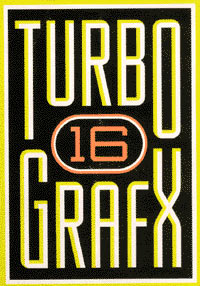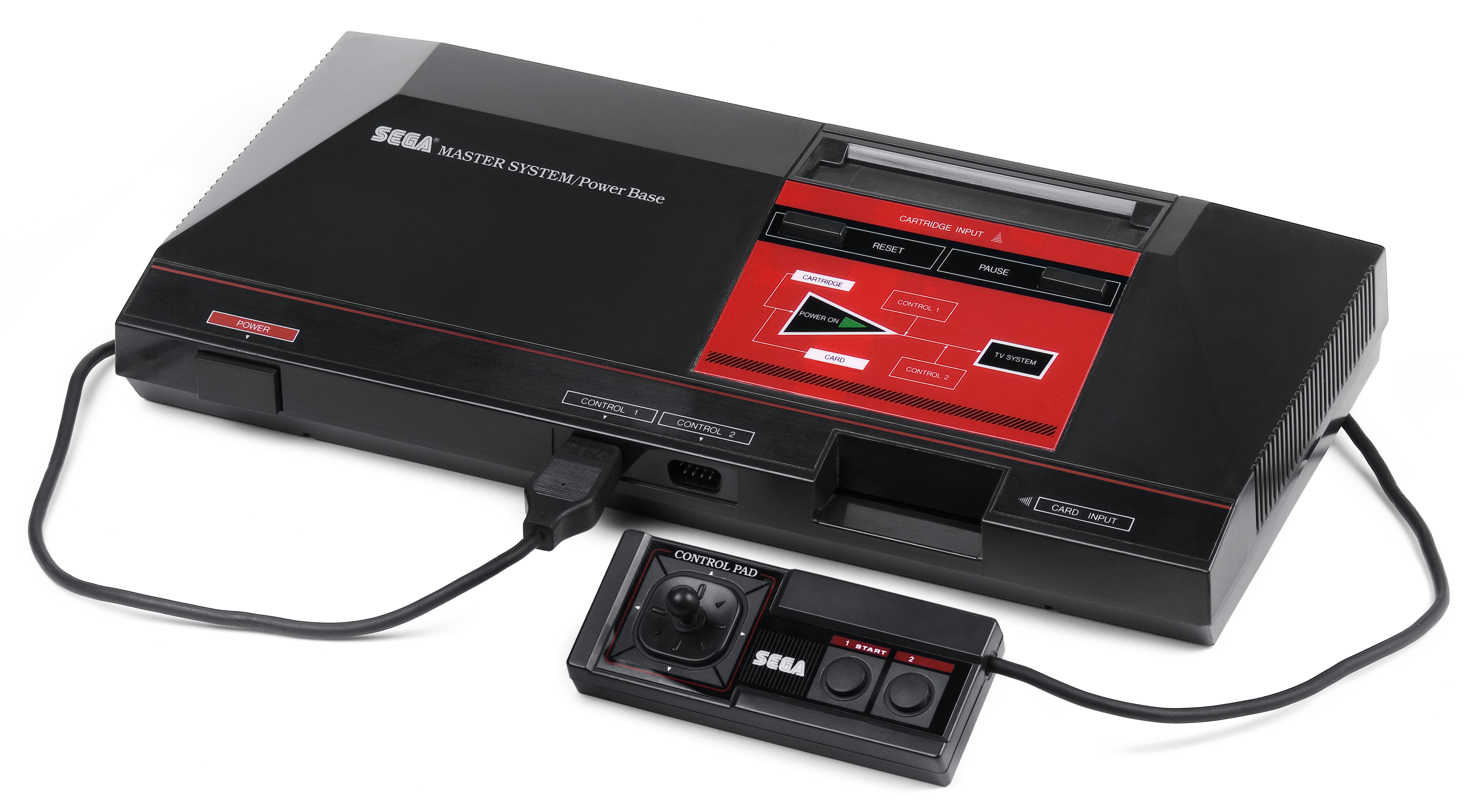|
Cloud Master
''Cloud Master'' is a horizontally scrolling shooter released as an arcade video game by Taito in 1988. Home versions were released for the Master System, PC Engine, and Famicom, with all save the Master System version released only in Japan. The PC Engine version of the game is titled . The Famicom version is titled ''Chuuka Taisen''. Gameplay The player controls Mike Chen floating on a cloud, maneuvering around the screen and shooting balls of energy at flying enemies. Powerups can be collected for stronger and faster firepower. Some parts of the game stage have doors that give the player the opportunity to buy special bomb types with collectible credits. Each stage has its own mini-boss and big boss. The player restarts at certain checkpoints after losing a life. Reception In Japan, ''Game Machine'' listed ''Cloud Master'' on their August 15, 1988 issue as being the sixteenth most-successful table arcade unit of the month. Legacy In 2008, Starfish SD, a company founded b ... [...More Info...] [...Related Items...] OR: [Wikipedia] [Google] [Baidu] |
Opera House
An opera house is a theatre building used for performances of opera. It usually includes a stage, an orchestra pit, audience seating, and backstage facilities for costumes and building sets. While some venues are constructed specifically for operas, other opera houses are part of larger performing arts centers. Indeed, the term ''opera house'' is often used as a term of prestige for any large performing-arts center. History Italy is a country where opera has been popular through the centuries among ordinary people as well as wealthy patrons and it continues to have many working opera houses such as Teatro Massimo in Palermo (the biggest in Italy), Teatro di San Carlo in Naples (the world's oldest working opera house) and Teatro La Scala in Milan. In contrast, there was no opera house in London when Henry Purcell was composing and the first opera house in Germany, the Oper am Gänsemarkt, was built in Hamburg in 1678, followed by the Oper am Brühl in Leipzig in 1693, and t ... [...More Info...] [...Related Items...] OR: [Wikipedia] [Google] [Baidu] |
Video Game Remake
A video game remake is a video game closely adapted from an earlier title, usually for the purpose of modernizing a game with updated graphics for newer hardware and gameplay for contemporary audiences. Typically, a remake of such game software shares essentially the same title, fundamental gameplay concepts, and core story elements of the original game, although some aspects of the original game may have been changed for the remake. Remakes are often made by the original developer or copyright holder, and sometimes by the fan community. If created by the community, video game remakes are sometimes also called fangames and can be seen as part of the retro gaming phenomenon. Definition A remake offers a newer interpretation of an older work, characterized by updated or changed assets. For example, '' The Legend of Zelda: Ocarina of Time 3D'' and '' The Legend of Zelda: Majora's Mask 3D'' for the Nintendo 3DS are considered remakes of their original versions for the Nintendo 64, an ... [...More Info...] [...Related Items...] OR: [Wikipedia] [Google] [Baidu] |
Video Games Based On Chinese Mythology
Video is an electronic medium for the recording, copying, playback, broadcasting, and display of moving visual media. Video was first developed for mechanical television systems, which were quickly replaced by cathode-ray tube (CRT) systems which, in turn, were replaced by flat panel displays of several types. Video systems vary in display resolution, aspect ratio, refresh rate, color capabilities and other qualities. Analog and digital variants exist and can be carried on a variety of media, including radio broadcast, magnetic tape, optical discs, computer files, and network streaming. History Analog video Video technology was first developed for mechanical television systems, which were quickly replaced by cathode-ray tube (CRT) television systems, but several new technologies for video display devices have since been invented. Video was originally exclusively a live technology. Charles Ginsburg led an Ampex research team developing one of the first practical video ... [...More Info...] [...Related Items...] OR: [Wikipedia] [Google] [Baidu] |
Video Games About Primates
Video is an electronic medium for the recording, copying, playback, broadcasting, and display of moving visual media. Video was first developed for mechanical television systems, which were quickly replaced by cathode-ray tube (CRT) systems which, in turn, were replaced by flat panel displays of several types. Video systems vary in display resolution, aspect ratio, refresh rate, color capabilities and other qualities. Analog and digital variants exist and can be carried on a variety of media, including radio broadcast, magnetic tape, optical discs, computer files, and network streaming. History Analog video Video technology was first developed for mechanical television systems, which were quickly replaced by cathode-ray tube (CRT) television systems, but several new technologies for video display devices have since been invented. Video was originally exclusively a live technology. Charles Ginsburg led an Ampex research team developing one of the first practica ... [...More Info...] [...Related Items...] OR: [Wikipedia] [Google] [Baidu] |
TurboGrafx-16 Games
The TurboGrafx-16, known as the outside North America, is a home video game console designed by Hudson Soft and sold by NEC Home Electronics. It was the first console marketed in the fourth generation, commonly known as the 16-bit era, though the console has an 8-bit central processing unit (CPU) coupled with a 16-bit graphics processor. It was released in Japan in 1987 and in North America in 1989. In Europe, the console is known as the PC Engine, after the Japanese model was imported and distributed in the United Kingdom and France from 1988. In Japan, the system was launched as a competitor to the Famicom, but the delayed United States release meant that it ended up competing with the Sega Genesis and later the Super NES. The console has an 8-bit CPU and a dual 16-bit graphics processing unit (GPU) chipset consisting of a video display controller (VDC) and video color encoder. The GPUs are capable of displaying 482 colors simultaneously, out of 512. With dimensions of just ... [...More Info...] [...Related Items...] OR: [Wikipedia] [Google] [Baidu] |
Nintendo Entertainment System Games
This is a list of games for the Nintendo Entertainment System (NES) home video game console. Some games have been officially licensed by Nintendo, and some are unlicensed. The final licensed NES game released was the PAL-exclusive ''The Lion King'' in 1995. __TOC__ Licensed games A total of 716 known licensed games were released for the Nintendo Entertainment System (NES) during its lifespan; 367 of these games were released only in North America plus 2 championship games, 36 games released outside North America and 313 games released everywhere. Games dated October 18, 1985 are launch titles for North America. Championship games Unreleased games Canceled games The following games were initially announced as Nintendo Entertainment System and/or Family Computer titles, however were subsequently cancelled or postponed indefinitely by developers or publishers. Unlicensed games There are unlicensed games in the NES library released without approval from Nint ... [...More Info...] [...Related Items...] OR: [Wikipedia] [Google] [Baidu] |
Multiplayer Hotseat Games
Hotseat or hot seat is a multiplayer mode provided by some turn-based video games, which allows two or more players to play on the same device by taking turns playing the game. The term was first used as a reference to playing a PC game and trading seats with the other player, but the mode dates back to early 1980s arcade games. A notable example of games that use this mode is the ''Heroes of Might and Magic'' series, which allows up to 8 players to play locally on the same computer. Hotseat multiplayer has also seen prominence on some console video games, especially certain multiplayer games that are intended to be family-friendly, within the party genre, or both. For example, the Wii games ''Wii Sports'' and ''Wii Sports Resort'' have certain sports, such as golf, that require its competitors to take turns. Players share a Wii Remote, the system's controller, which the current player has possession of during a turn. Hotseat play allows players to play a multiplayer game with ... [...More Info...] [...Related Items...] OR: [Wikipedia] [Google] [Baidu] |
Multiplayer And Single-player Video Games
A multiplayer video game is a video game in which more than one person can play in the same game environment at the same time, either locally on the same computing system (couch co-op), on different computing systems via a local area network, or via a wide area network, most commonly the Internet (e.g. ''World of Warcraft'', ''Call of Duty'', DayZ (video game), ''DayZ''). Multiplayer games usually require players to share a single game system or use Mobile network, networking technology to play together over a greater distance; players may compete against one or more human contestants, work Cooperative video game, cooperatively with a human partner to achieve a common goal, or Gamemaster, supervise other players' activity. Due to multiplayer games allowing players to interact with other individuals, they provide an element of social communication absent from single-player games. History Non-networked Some of the earliest video games were two-player games, including early sports g ... [...More Info...] [...Related Items...] OR: [Wikipedia] [Google] [Baidu] |
MSX2 Games
MSX is a standardized home computer architecture, announced by Microsoft and ASCII Corporation on June 16, 1983. It was initially conceived by Microsoft as a product for the Eastern sector, and jointly marketed by Kazuhiko Nishi, then vice-president at Microsoft and director at ASCII Corporation. Microsoft and Nishi conceived the project as an attempt to create unified standards among various home computing system manufacturers of the period, in the same fashion as the VHS standard for home video tape machines. MSX systems were popular in Japan and several other countries. Eventually, 9 million MSX units were sold worldwide, including in Japan alone. Despite Microsoft's involvement, few MSX-based machines were released in the United States. The very first commercial MSX for the public was a Mitsubishi ML-8000, released on October 21, 1983, thus marking its official "release date". The meaning of the acronym MSX remains a matter of debate. In 2001, Kazuhiko Nishi recalled t ... [...More Info...] [...Related Items...] OR: [Wikipedia] [Google] [Baidu] |
Master System Games
The Master System—renamed and with a redesigned casing from the original Sega Mark III, which had been released in the Japanese market in 1985—is a video game console released by Sega in the North American market in June 1986 to compete with the Nintendo Entertainment System, which had been released in the same market in February 1986 (an earlier test market for NES in New York and California occurred in October 1985). Originally priced at 200, North American distribution rights for the console were acquired by Tonka before Sega re-acquired the rights themselves and released a further streamlined redesign of the console during the launch of the Sega Genesis. The Master System was later released in Europe in September 1987, in South Korea in April 1989 and in Brazil in September 1989 where distribution rights were given to Tec Toy. A re-release of the console in the Japanese market under the new Master System brand and redesign also occurred in 1987. This is a list of the game ... [...More Info...] [...Related Items...] OR: [Wikipedia] [Google] [Baidu] |
Hot B Games
Hot or the acronym HOT may refer to: Food and drink *Pungency, in food, a spicy or hot quality *Hot, a wine tasting descriptor Places *Hot district, a district of Chiang Mai province, Thailand **Hot subdistrict, a sub-district of Hot District, Thailand **Tha Kham, Chiang Mai, also known as Hot, a town in Hot District, Chiang Mai province, Thailand *Hot, Albania, a village in the Malësi e Madhe municipality, Shkodër County, Albania Music * H.O.T. pronounced "H. O. T.", (High-Five of Teenagers), a South Korean boy band *Hawaii Opera Theatre, an opera company in Honolulu, Hawaii *Hot (American vocal group), best known for 1977 hit "Angel in Your Arms" 1976–1980 *Hot 97, branding for hip-hop radio station WQHT in New York City Albums * ''Hot'' (Freda Payne album), 1979 * ''Hot'' (Half Japanese album), 1995 * ''Hot'' (Inna album) or the title song (see below), 2009 * ''Hot'' (James Brown album) or the title song (see below), 1976 * ''Hot'' (Mel B album), 2000 * ''Hot'' (Paul B ... [...More Info...] [...Related Items...] OR: [Wikipedia] [Google] [Baidu] |
Horizontally Scrolling Shooters
*
{{disambiguation ...
Horizontal may refer to: *Horizontal plane, in astronomy, geography, geometry and other sciences and contexts * Horizontal coordinate system, in astronomy *Horizontalism, in monetary circuit theory *Horizontalism, in sociology *Horizontal market, in microeconomics * ''Horizontal'' (album), a 1968 album by the Bee Gees ** "Horizontal" (song)" is a 1968 song by the Bee Gees See also *Horizontal and vertical *Horizontal fissure (other), anatomical features *Horizontal bar, an apparatus used by male gymnasts in artistic gymnastics *Vertical (other) Vertical is a geometric term of location which may refer to: * Vertical direction, the direction aligned with the direction of the force of gravity, up or down * Vertical (angles), a pair of angles opposite each other, formed by two intersecting s ... [...More Info...] [...Related Items...] OR: [Wikipedia] [Google] [Baidu] |





